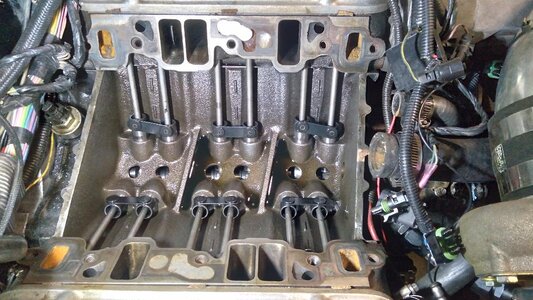6gunn
high on gas fumes
- Joined
- Sep 21, 2003
I'm getting knock from what I think is the valvetrain. 3rd gear WOT pull shows 0 knock and I'm running E85 too with the proper injectors/pump to support it. Can the valvetrain "clicking" even trigger the knock sensor? With 1.55 T&D roller rockers & hydraulic lifters, I have the lifter preload at 1/4 turn and suspect that may be too loose. Converter bolts are tight, downpipe isn't hitting anywhere, and both motor mounts are HR parts. Also might mention that it's showing knock while just cranking over the motor(not running) and am running the (I think) LT1 mini starter. Something is amiss and I can't find the source. Thanks.

